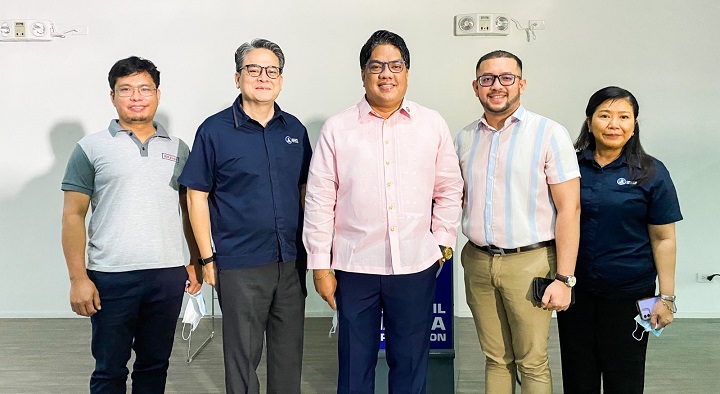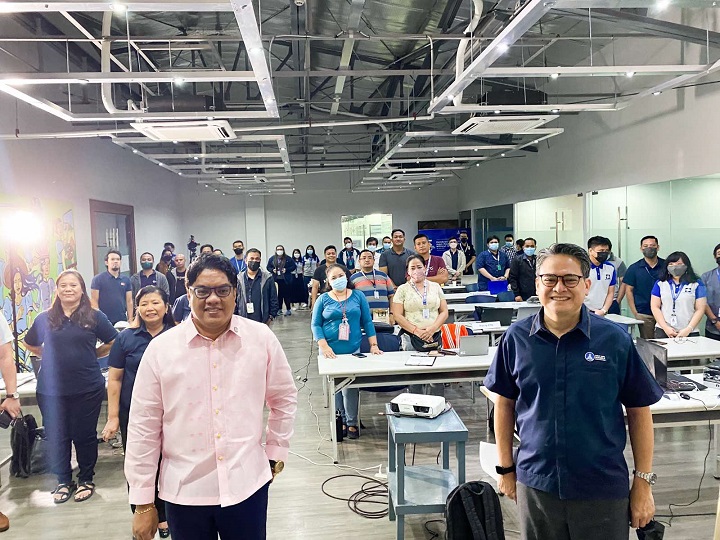LRT-1 private operator Light Rail Manila Corporation (LRMC) has teamed up with the Department of Science and Technology (DOST) through its Philippine Institute of Volcanology and Seismology (PHIVOLCS) for the Rapid Earthquake Damage Assessment System (REDAS) training among LRT-1 employees and partners. This is part of LRMC’s business continuity management to strengthen the disaster preparedness of LRT-1 operations and surrounding communities through resources, expertise, and facilities sharing.

The REDAS is a software developed by PHIVOLCS in 2002 under a DOST-GIA Project. The software can simulate earthquake hazards such as ground shaking, liquefaction, landslides, and tsunami. The software can also compute earthquake impact in terms of physical damage, casualties, and economic loss.
The pilot training for LRMC employees was conducted in 2021 by the DOST-REDAS Team, which covered Module 1: Introduction to REDAS, Basic Map Reading, Understanding Geological Hazards, Earthquake and Tsunami Alerting Module (ETAM) Familiarization, Satellite Rainfall Monitor (SRM) and Seismic Hazard Assessment (SHA) Familiarization. For 2022, this was expanded to include LRT-1 partners for Module 1, and the conduct of Module 2 consisting of in-depth focus on SQLITE, SRM Data Acquisition, SHAKE Presentation, and REDAS as an Impact Assessment Tool.
“We are grateful for our sustained partnership with the DOST. The REDAS software has become a tool of choice for LRMC in spearheading, planning, and execution during times of natural calamities. In times of disruptive incidents, one of our main tasks is to ensure the continued delivery of service at acceptable levels. REDAS has been a vital component in addressing the planning requirements of disaster monitoring and risk reduction. We decided to extend the same training, in coordination with PHIVOLCS, to our LGU partners along the LRT-1 who help us maintain an overall safe and resilient system. This is to have a concerted, harmonized, and systematic effort to strengthen our emergency preparedness,” LRMC Head of Health, Safety, Environment, and Quality Department Dr. Louernie De Sales said.
The recent 5-day hybrid REDAS training was held from 6 – 10 June 2022 at the LRT-1 Depot in Baclaran and via ZOOM, which brought together participants from LRMC and different public and private partners. Some of the partners included Light Rail Transit Authority (LRTA), Bureau of Fire Protection (BFP), Philippine National Police (PNP) Pasay, Pasay City Disaster Risk Reduction and Management Office (DRRMO), Pasay City Environment and Natural Resources Office (CENRO), Barangay 190 Pasay City, Caloocan City Disaster Risk Reduction Management Office (CCDRRMO), Department of Public Services (DPS) – Manila, Parañaque City Risk Reduction and Management Office (RRMO), Quezon City Disaster Risk Reduction and Management Council (QCDRRMC), Metro Pacific Tollways Corporation (MPTC), Metro Pacific Tollways South Management Corporation, NLEX Corporation, and Awesome Ways International Services.

“The transport sector, in particular, is very vulnerable to various natural hazards. And they need to be protected because immediately after a major event – a disaster – the transport sector should be revived and be able to open the city, the metropolis, and have access in and out of this area. So, I am very glad, I remember, that we had this training also before, and I’m sure that LRMC and the local government units and its officials would really support your participation and make sure that what you will learn will be implemented to further improve the overall operations resilient to these threats,” Department of Science and Technology Undersecretary and PHIVOLCS Officer-in-Charge Renato U. Solidum, Jr. said.
“I hope that this training and orientation with the REDAS will equip our attendees with knowledge necessary for disaster preparedness. We never know when the next earthquake will come but we should always be prepared. Preparedness and knowledge lessen damage to both lives and properties. I join you in the crusade for safety. Let’s all work together to ensure that safety is a priority in our respective offices. Let us all be prepared and let us all be ready to serve,” Pasay City LGU Chief of Staff Peter Eric Pardo said.

